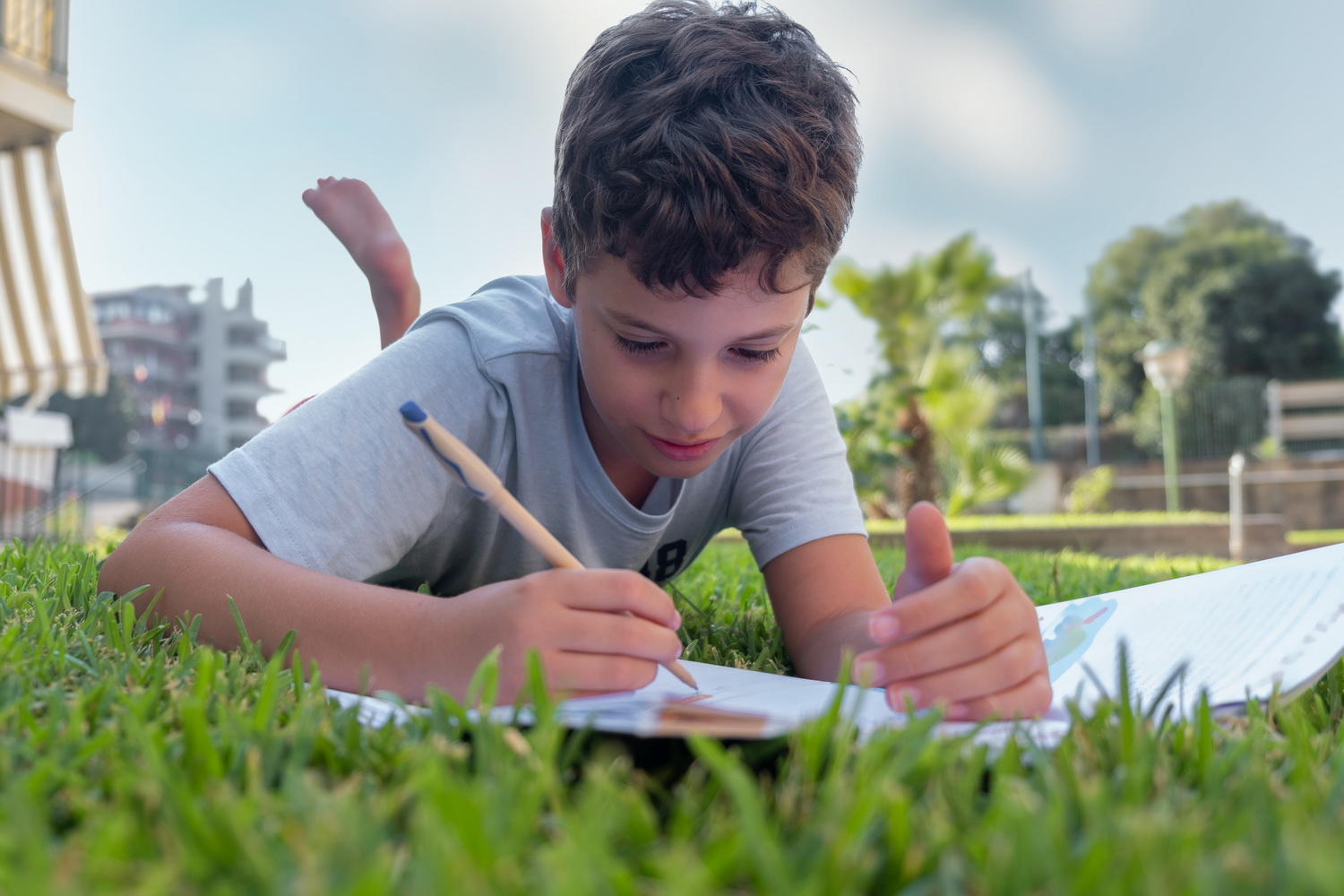Vocabulary expansion Reading Fiction Worksheets for Ages 5-7
10 filtered results
-
From - To
Unlock the world of words with our engaging Vocabulary Expansion Reading Fiction Worksheets designed for ages 5-7! These interactive worksheets help young learners enhance their vocabulary through captivating stories and playful activities. Children will explore new words, improve comprehension, and build a love for reading as they engage with age-appropriate fictional texts. Each worksheet is crafted to promote critical thinking and encourage creativity, making learning enjoyable and effective. Ideal for teachers and parents alike, our resources offer a fun way to boost language skills while nurturing a lifelong passion for reading. Start your child's vocabulary journey today!


Rhymes in Poems Worksheet
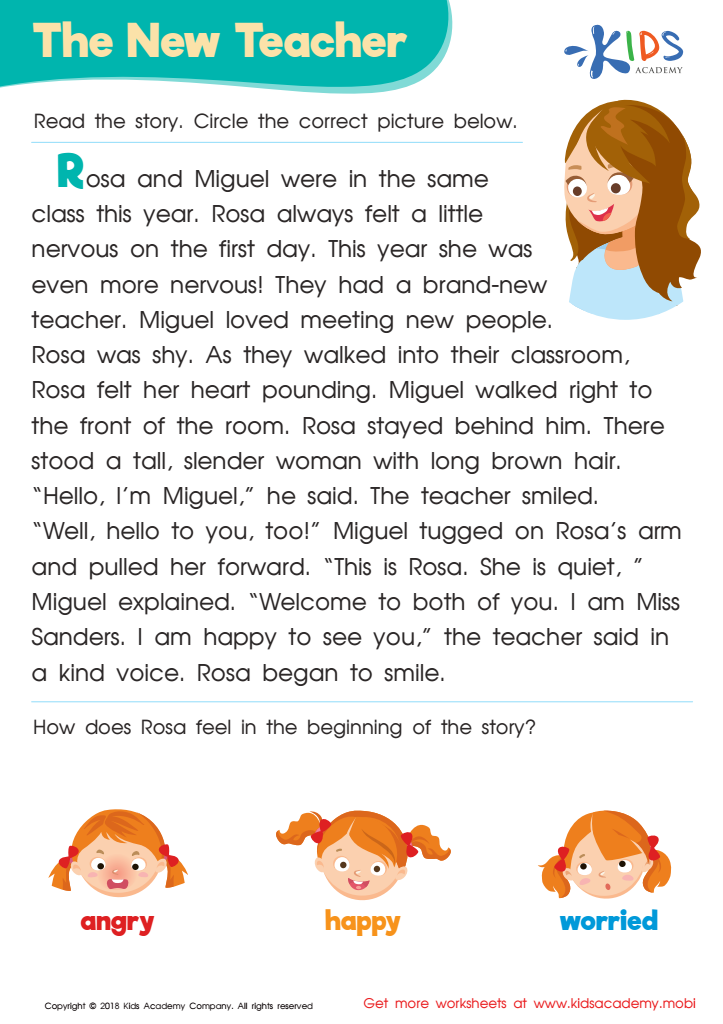

The New Teacher Worksheet
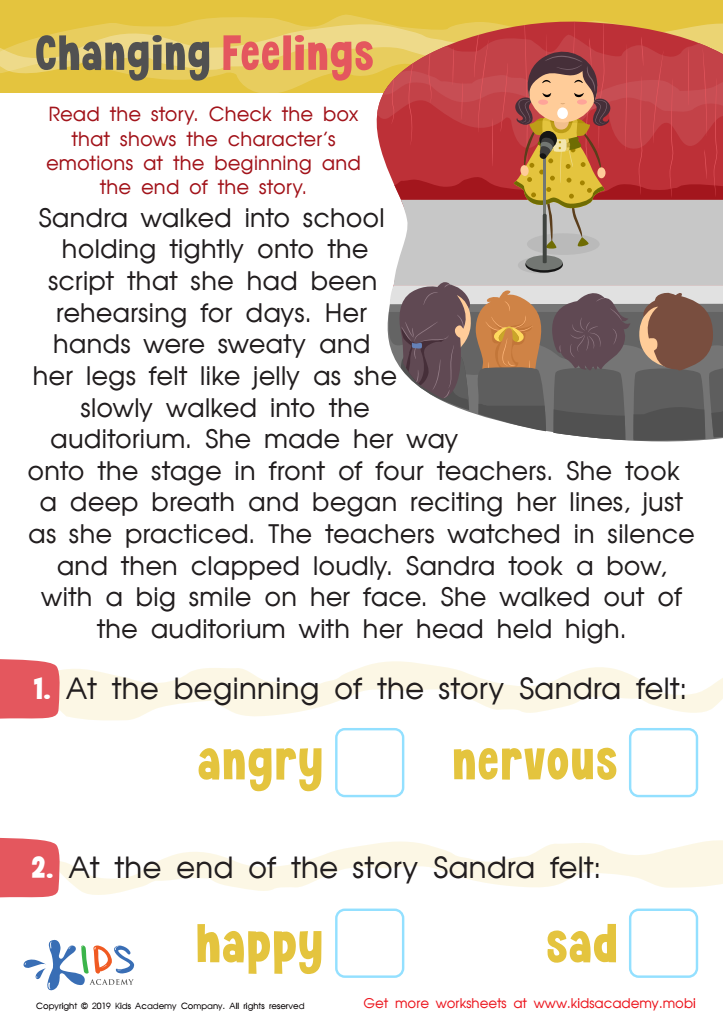

Changing Feelings Worksheet
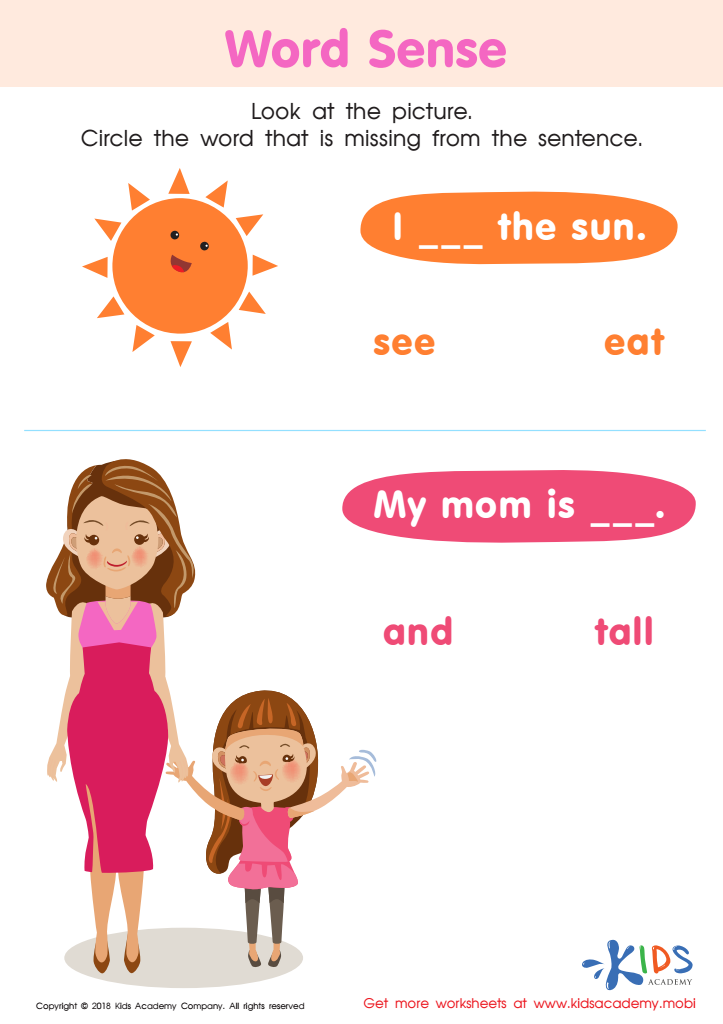

Word Sense Worksheet
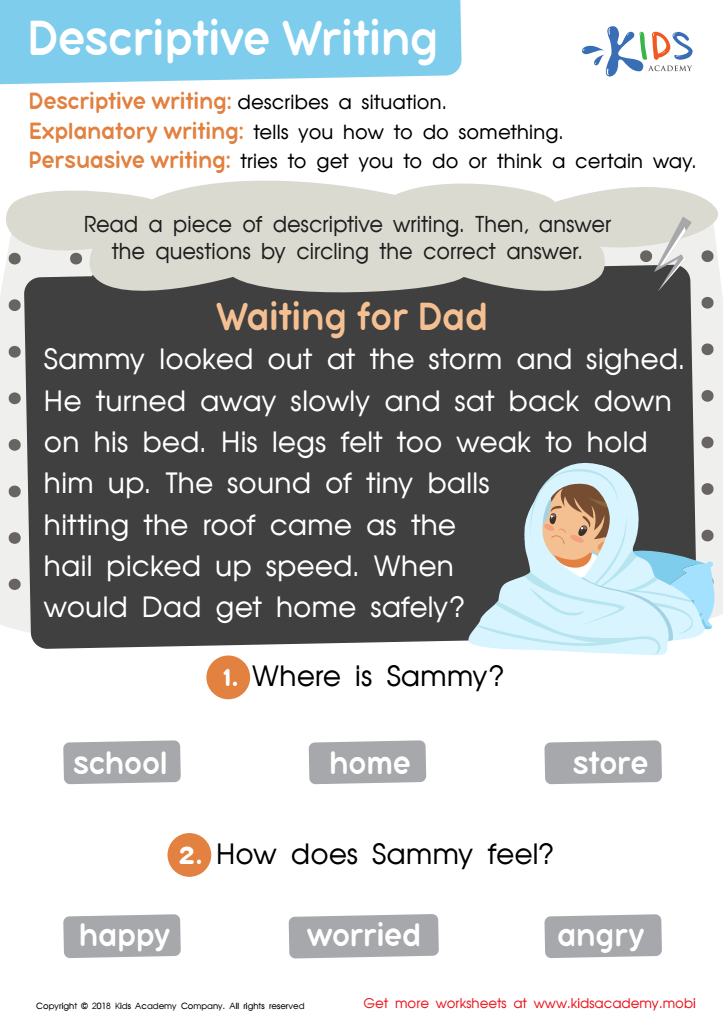

Descriptive Writing Worksheet: Part 2
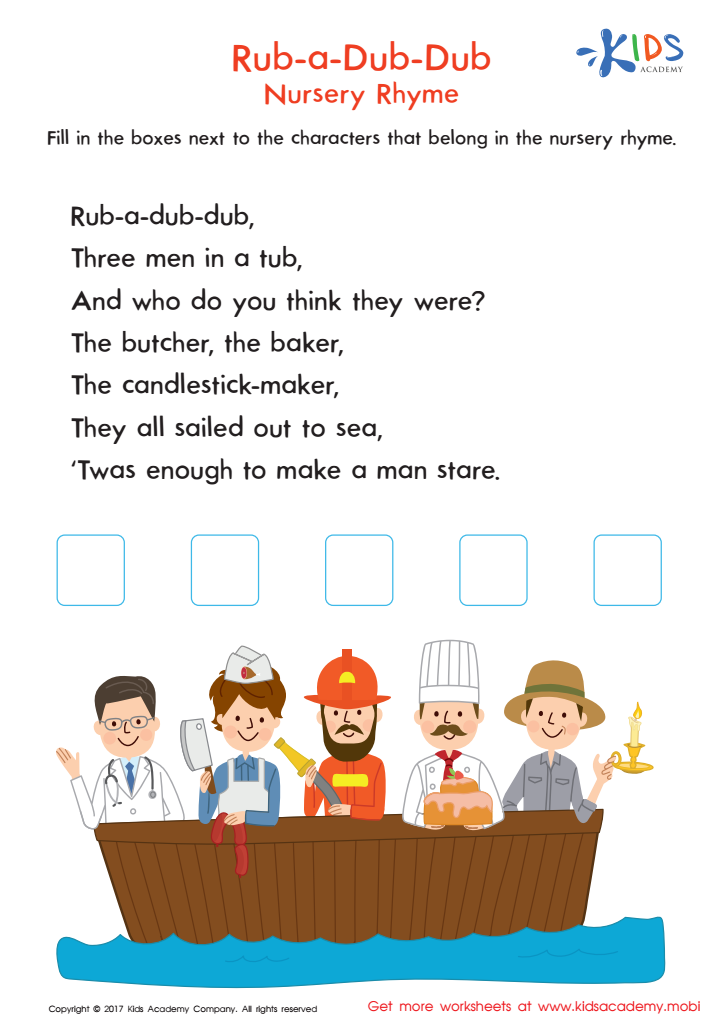

Rub a Dub Dub Printable
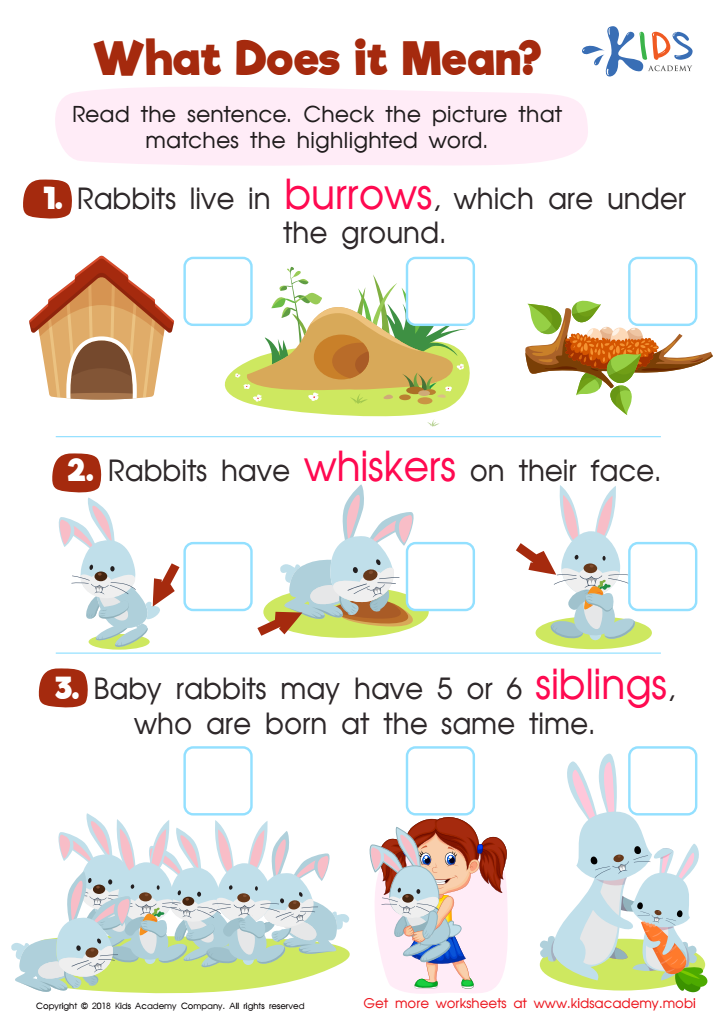

What Does It Mean? Worksheet
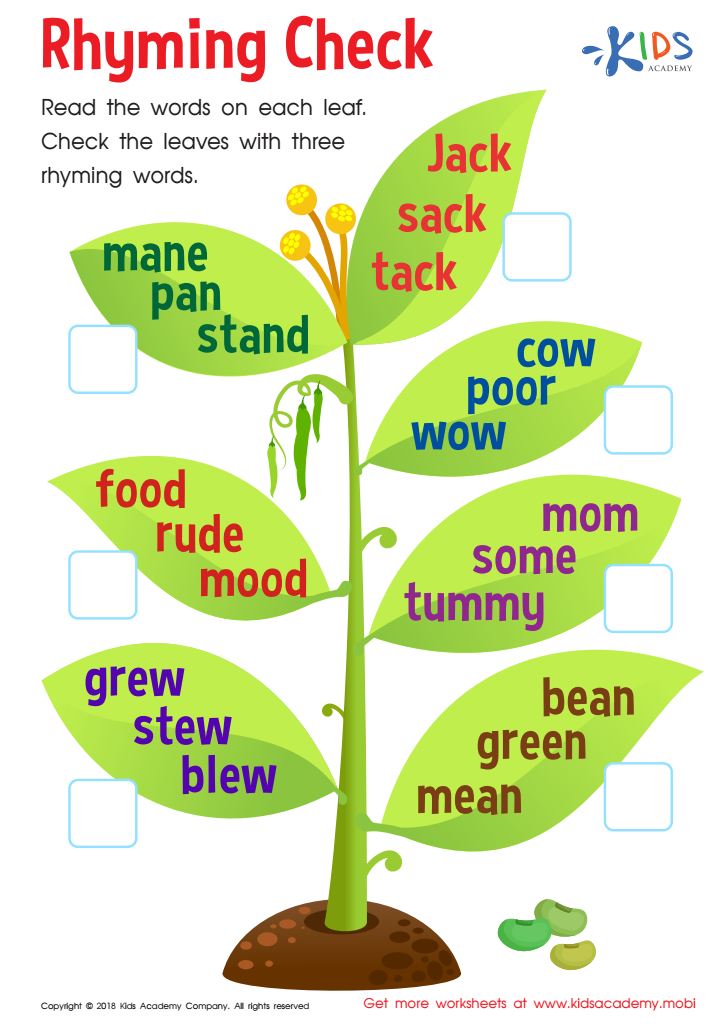

Rhyming Check Worksheet
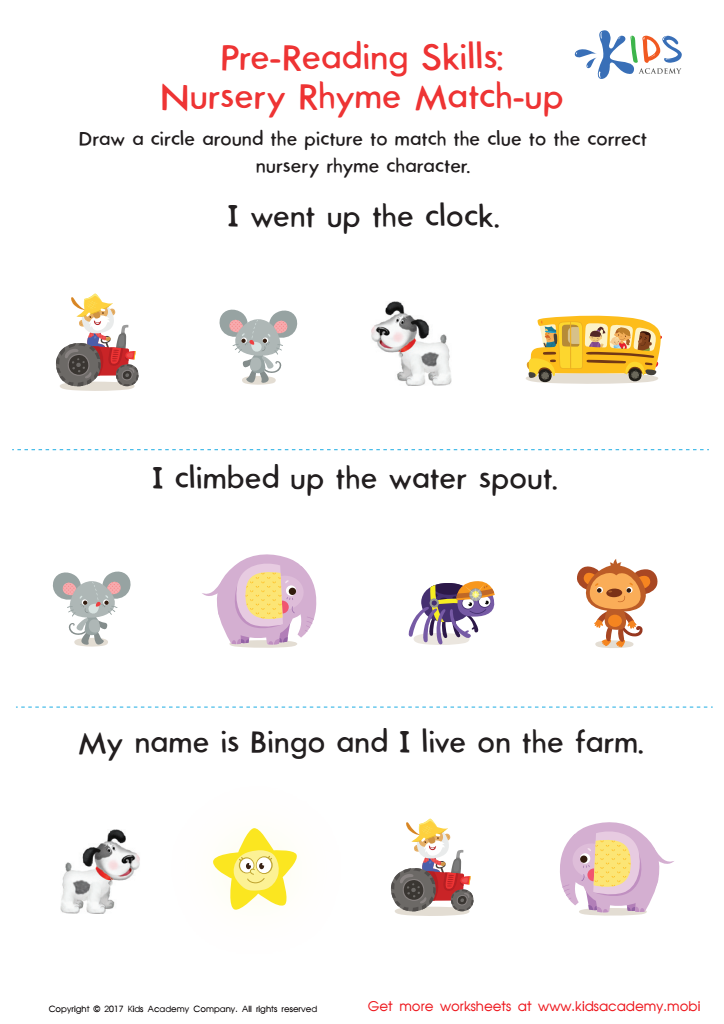

Nursery Rhyme Match–Up Worksheet
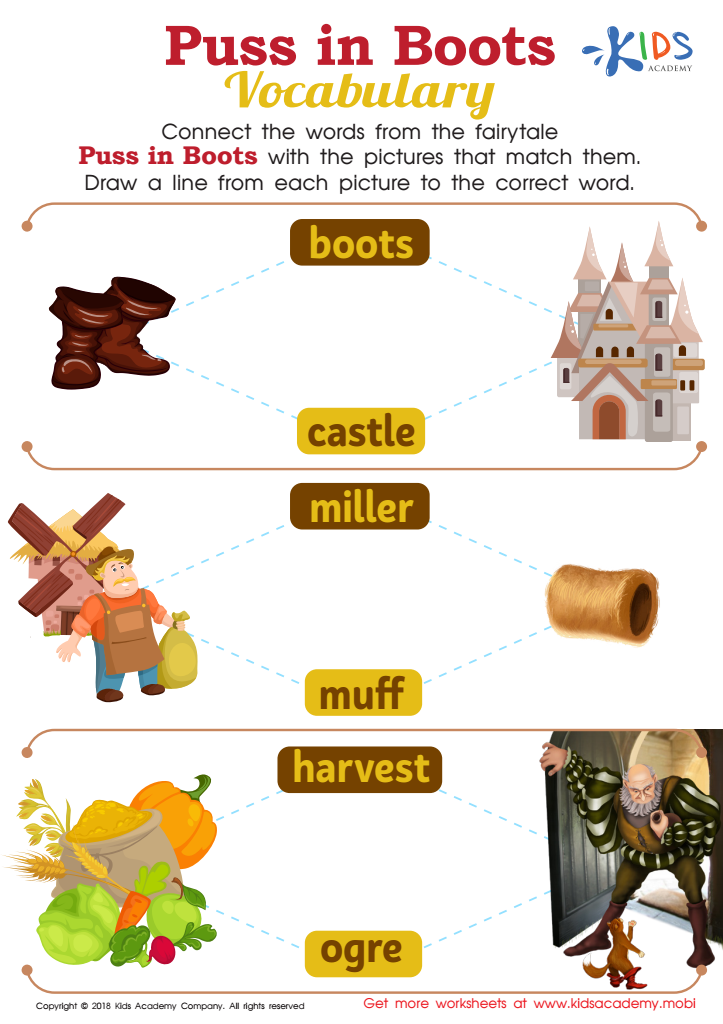

Puss in Boots Vocabulary Worksheet
Vocabulary expansion through reading fiction for children aged 5-7 is crucial for several reasons. First, at this developmental stage, children's brains are primed for language acquisition. Engaging with rich, diverse vocabulary in picture books and stories enhances their language skills, allowing them to express thoughts, emotions, and ideas more clearly.
Moreover, fiction encourages imagination and creativity, fostering a love for reading that can last a lifetime. As children immerse themselves in stories, they encounter new words in context, helping them deduce meanings and usage—skills essential for academic success. The act of reading fiction also develops critical thinking and comprehension skills, enabling children to make connections between characters and plots.
For parents and teachers, investing time in reading fiction is an opportunity to engage with children emotionally and intellectually, strengthening bonds and stimulating discussions about narratives and themes. Additionally, a well-developed vocabulary aids literacy skills, preparing children for future educational demands. In essence, encouraging vocabulary expansion through fiction not only equips children with language tools but also nurtures a well-rounded, motivated learner prepared for the challenges of higher-grade skills. Promoting reading now lays a strong foundation for lifelong learning and communication.

 Assign to My Students
Assign to My Students







.jpg)
